—Carina Roselli
In the Spring 2019 issue, in my Letter from the Editor, I mentioned that I suffer from severe anxiety and depression secondary to fibromyalgia. I did that to open up a dialogue within EQuine AMerica’s pages and to contribute to the discussion going on in our equine community. In this editorial, I’ll share some of my experiences with you and hopefully educate you a bit about mental health in the sporting world. I ask that you read this article with an open mind and a supportive heart, and if you or someone you know suffers from mental health concerns, please tell someone—it’s the first step towards happiness.
NOTE: The views expressed in this editorial are merely the personal opinions of the writer and do not constitute medical advice. If you are experiencing any mental health concerns, please seek medical advice from a licensed practitioner. If you find yourself in a mental health emergency, please dial 911 or contact the National Suicide Prevention Lifeline at 1-800-273-TALK (8255). For more suicide prevention resources, visit the National Suicide Prevention Lifeline online here.

You know those pharmaceutical commercials where the person is going through their day holding up a smiley-face mask? That’s an accurate representation of how a lot of people with anxiety and depression feel every day. It’s certainly how I often feel. I spend each day acting like I have the world in the palm of my hand so that no one will notice I’m quietly dying inside. Then I come home and utterly crash from the energy it sapped to pull it off. And it goes on like that, one day at a time, until the exhaustion becomes all-consuming and I’m physically too weak to hold the mask up anymore. That’s when I crash and might not get up again.
It’s been on and off like this for a while now—years—battling anxiety and depression. And it is a battle. Behind the mask, or under the “veil” as I prefer to call it, is a personal war of logic vs. emotion vs. physical pain vs. chemistry.
It’s a personal war of logic vs. emotion vs. physical pain vs. chemistry.
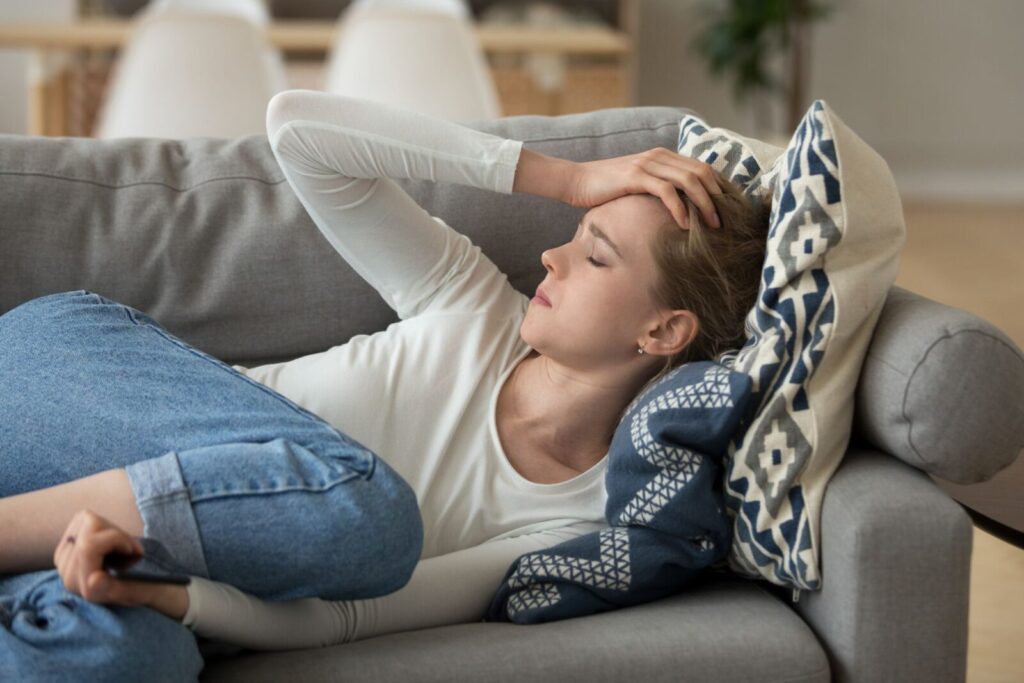
Logic fights on the basis that I truly have nothing to be sad about; I have a great family, great home, great car, great dog, great horse, and a very successful career. Logic is of course correct; all those things are true, but emotion fights back with unrelenting sadness and a hopeless feeling that my life somehow got away from me and I’m never getting it back, so I might as well just quit. Emotion floods my senses until I become so full of them that my defenses buckle. Then pain—physical pain—appears seemingly out of nowhere and sets up forts all over my body, with at least two battalions in my head and chest. Finally, my brain chemistry is supposedly calling the troop movements, which my doctor calls a chemical imbalance in my brain that’s not my fault. That’s nice to know, but it doesn’t end the war (pardon the military metaphors… it’s all I know).
When things are really bad, my anxiety keeps me from leaving the house and my depression keeps me from getting off the couch. It feels like I’m going through my days in slow motion, and every trip from the couch to the kitchen is exhausting. Taking a shower is exhausting. Seeing my horse or playing with my dog feels like a literal impossibility, and then I realize I don’t even want to do that anymore because those things that once brought me joy no longer do; they’re just more sources of exhaustion (anhedonia). Starting to feel hopeless is the worst because hopelessness without cause feels like insanity, and insanity feels like I’ve lost control of the situation—and that’s when things get scary.
Anxiety and depression in the sporting world are more than feeling down after a bad day of riding, pre-performance jitters, fear after an injury, or even loss of a beloved partner. Those are all very real feelings, but not ones that typically result in chronic anxiety or major depressive disorder.
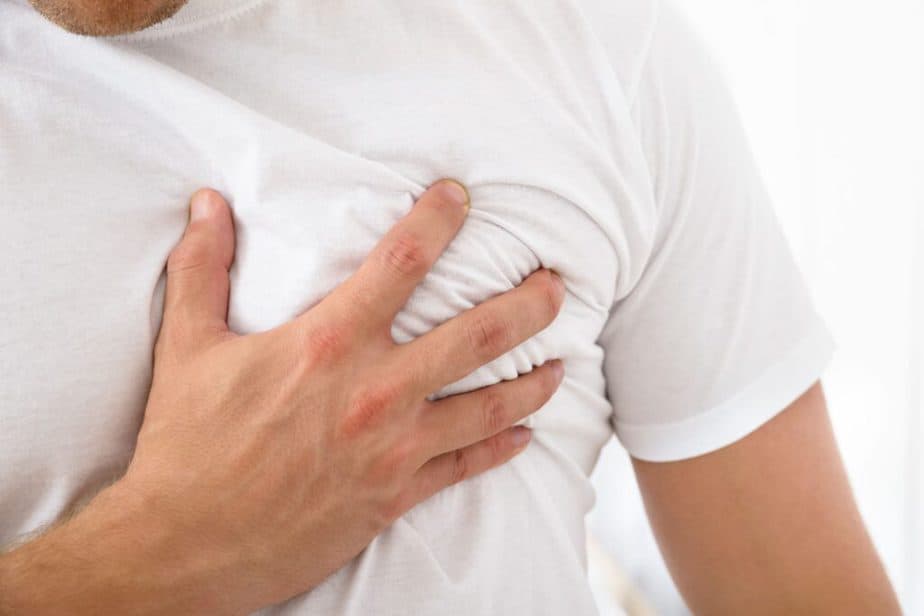
Anxiety and depression are common in high-performance athletes and everyday riders. You can be a super high-achieving individual, but still have a predisposition to a mood disorder. There are incredibly successful people, in competition and in life, who have been chronically plagued with depression. A bright smile isn’t always indicative of an unencumbered soul, but some athletes feel driven to suffer in silence in case it affects their careers.
In “The Mental Health of Elite Athletes: A Narrative Systemic Review,” Rice, Purcell, and De Silva recognized that injured athletes, those who are experiencing performance difficulty, and those who are on the verge of retirement tend to experience greater risk of mental disorder. They also noted that athletes tend not to seek support for mental health problems because of social stigma, a belief that seeking help is a sign of weakness, and because of their own lack of understanding about how mental health can influence performance.
Anxiety and/or depression can also cause or result from perfectionism in its negative, critical, and obsessive forms that tend to cause problems of self-esteem. In “Self-esteem and Perfectionism in Elite Athletes: Effects on Competitive Anxiety and Self-Confidence,” Koivula, Hassmen, and Fallby found something that I personally experience: self-esteem based on self-respect in its own right resulted in more positive patterns of perfectionism, whereas self-esteem based on competence resulted in more negative forms of perfectionism. I have a more maladaptive form of perfectionism that grows out of self-critical views of my own competence—to fly, to “lawyer,” to ride, to be a good spouse… to run a magazine. My views on my own (in)competence are definitely bricks in the foundation of my mental ill-health.

Two things that have not truly afflicted me are body image anxiety and eating disorders, but many of our peers suffer badly from these conditions. The tight-fitting breeches and clinging tops typical of our dress code lend themselves to sport-specific pressures to achieve a particular weight, shape, or appearance. In “Eating Disorders and Body Image Anxiety Current Issues In North American Sport Psychology: Identification And Prevention Of Weight Pressures And Body Image Concerns Among Athletes,” Reel noted that sports where appearance and clean lines have a perceived advantage can cause unhealthy behaviors, including eating disorders (EDs) like anorexia nervosa, bulimia nervosa, and eating disorders not otherwise specified (EDNOS).
Similarly, in “Elite Athletes: Effects of the Pressure to be Thin,” Byrne and McLean suggested that “athletes have a higher prevalence of EDs, especially in sports emphasizing thin shape (leanness) or low weight. Rates of EDs were higher in female athletes. Athletes competing in sports that emphasize the importance of a thin body shape or low body weight appear to be particularly vulnerable.” These conditions can materialize alone or in concert with other disorders like anxiety and depression, in fact it is not uncommon for someone to be railroaded by all three. If you know a rider, male or female, who appears to have body image issues that border on clinical disorder, I implore you to say something, hand them “The Little Breech Book” by The Hunt & Friends, and then take them out for a meal to talk about it. That’s a good first step.
Another major issue quietly attacking our community is mental illness second to concussions or traumatic brain injury (TBI), especially in young riders. Dr. David Geier, an orthopedic surgeon and sports medicine specialist in South Carolina, explains that a survey of 5,000 seventh through twelfth-grade students in Ontario, Canada indicated that head-injured students were more likely to admit to psychological distress, to seek help from a crisis hotline or website, and to take medications for anxiety and depression.
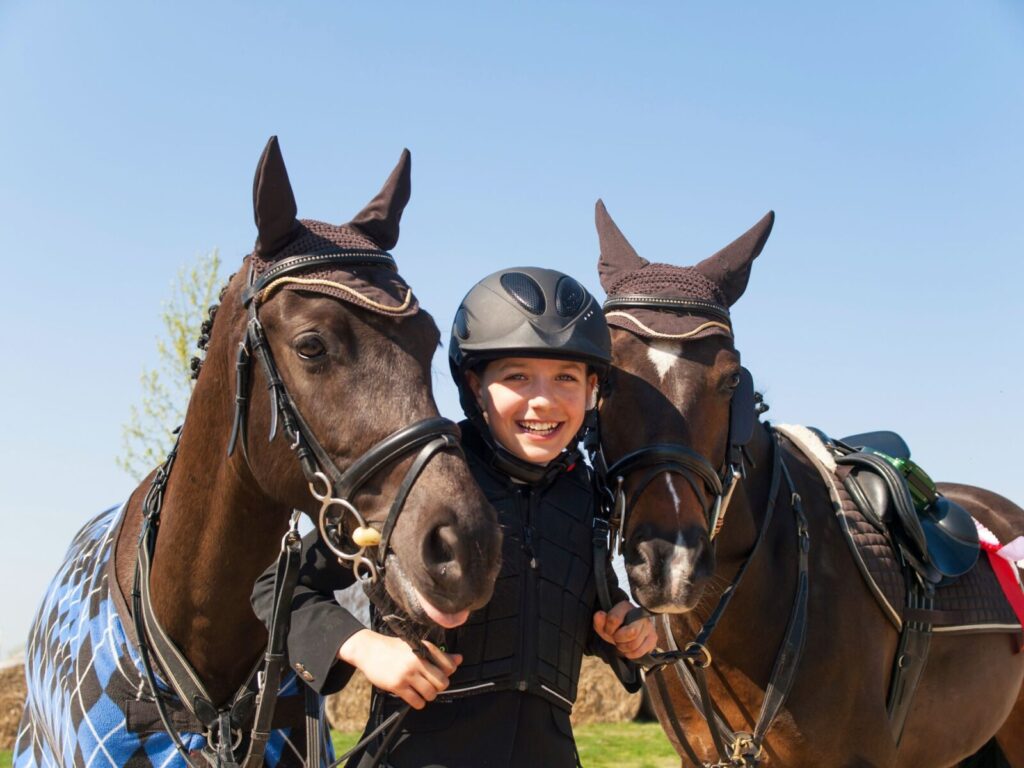
This, of course, applies to all ages of riders suffering such an injury, but is of exceptional concern for young riders whose brains are still developing and who are often tossed from horses. Much of the attention given to concussions focuses on return to play rather than potential long-term effects to mental health. In the weeks and months after head injury, parents, trainers, and friends should be vigilant looking for signs and symptoms such as headaches, dizziness, nausea, vomiting, sensitivity to light, emotional and behavioral problems, irritability or anger, changes in affect, and unexplained loss of interest.
Bottom line, equestrians are just as susceptible to mental health issues as anyone else, if not more so. In an October 2018 piece by Horse & Hound, sport psychologist Michael Caulfield, chief executive of the British Professional Jockeys Association, and performance psychologist Charlie Unwin discussed the several factors believed to contribute to our increased risk of mental ill-health:
We need to look after each other like we do our horses.
- “It’s a losing sport. You get beaten a lot and you start to question everything.”
- “The lifestyle is incredibly demanding. In other walks of life, you have a pattern, a forecast, but, with horses, it can all so easily go wrong. So much is out of your control—you can put three years into preparing for one day and then on the morning the horse treads on a stone.”
- “It’s difficult to get to the top and stay there. There are a multitude of things you can get depressed about, such as your riding ability, the quality of your horses, financial support—these things could really get you down.”
- “Feelings of isolation are common. A sense of progress can soon become distorted with too long working at home alone.”
- “We’ve always known that social comparison is a factor in increased anxiety, the difference now is that social media provides a distorted view of others’ achievements and can create a twisted perception of their realities.”
- “Sheer financial pressure. I’ve seen people sell their house to buy a horse, only to lose everything when the horse goes lame.”
At the very least, the thing to keep in mind is that when the bad days outnumber the good, and the bad days last for weeks or months—or God forbid years—it’s time to ask for help. Anxiety and depression are not fleeting; pay attention to any sticking changes in yourself or those around you (especially suicidal thoughts). If you or someone you know is experiencing sustained changes in emotional or psychological behavior, do not look the other way because you think it’s rude or taboo to mention. I think most people would agree, I’d rather you be rude than me be dead.
I’d rather you be rude than me be dead.
Read more about Rider Wellness.
FURTHER READING:
Rice, S.M., Purcell, R., De Silva, S. et al., The Mental Health of Elite Athletes: A Narrative Systematic ReviewSports Med (2016) 46: 1333.
Koivula N., Hassmen P., Fallby J., Self-esteem and Perfectionism in Elite Athletes: Effects on Competitive Anxiety and Self-Confidence, Pers Individ Differ. (2002) 32(5):865-75.
Reel, Justine J., Eating Disorders and Body Image Anxiety Current Issues In North American Sport Psychology: Identification And Prevention Of Weight Pressures And Body Image Concerns Among Athletes, Current issues in North American Sport Psychology, University of Utah (2011).
Byrne S., McLean N., Elite Athletes: Effects of the Pressure to be Thin, J Sci Med Sport. (2002) 5(2):80-94.
Carina is a 3rd generation equestrian who currently trains her Belgian x Haflinger gelding in the fine art of dressage. She recently medically retired from the U.S. Army after 17 years of service as an aviator turned JAG attorney. After taking orders for so many years, Carina decided to invent a new, creative, entrepreneurial, and autonomous future for herself. In 2018, she acquired, rebranded, and developed EQuine AMerica. In December of 2021, EQuine AMerica leveled up when it was acquired by StreamHorseTV. Carina is now focusing on building her new law firm, CLR Law, PLLC, which focuses on Legacy, Trusts & Estate Planning and Equine Legal & Business Services in Virginia.






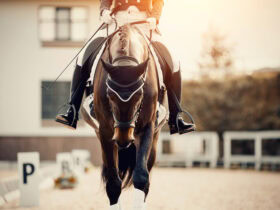
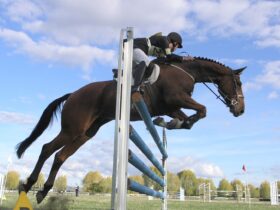

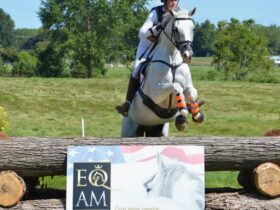
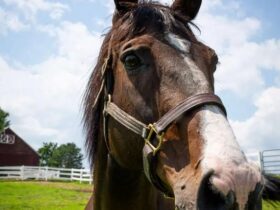
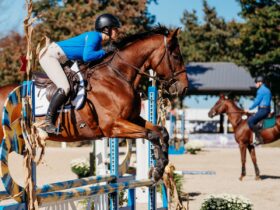

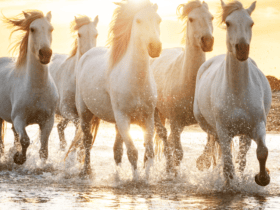
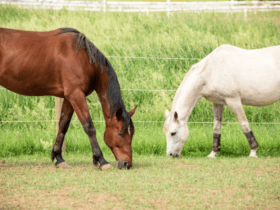




SOCIAL